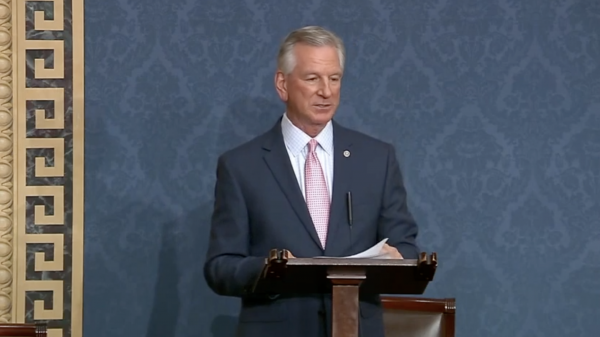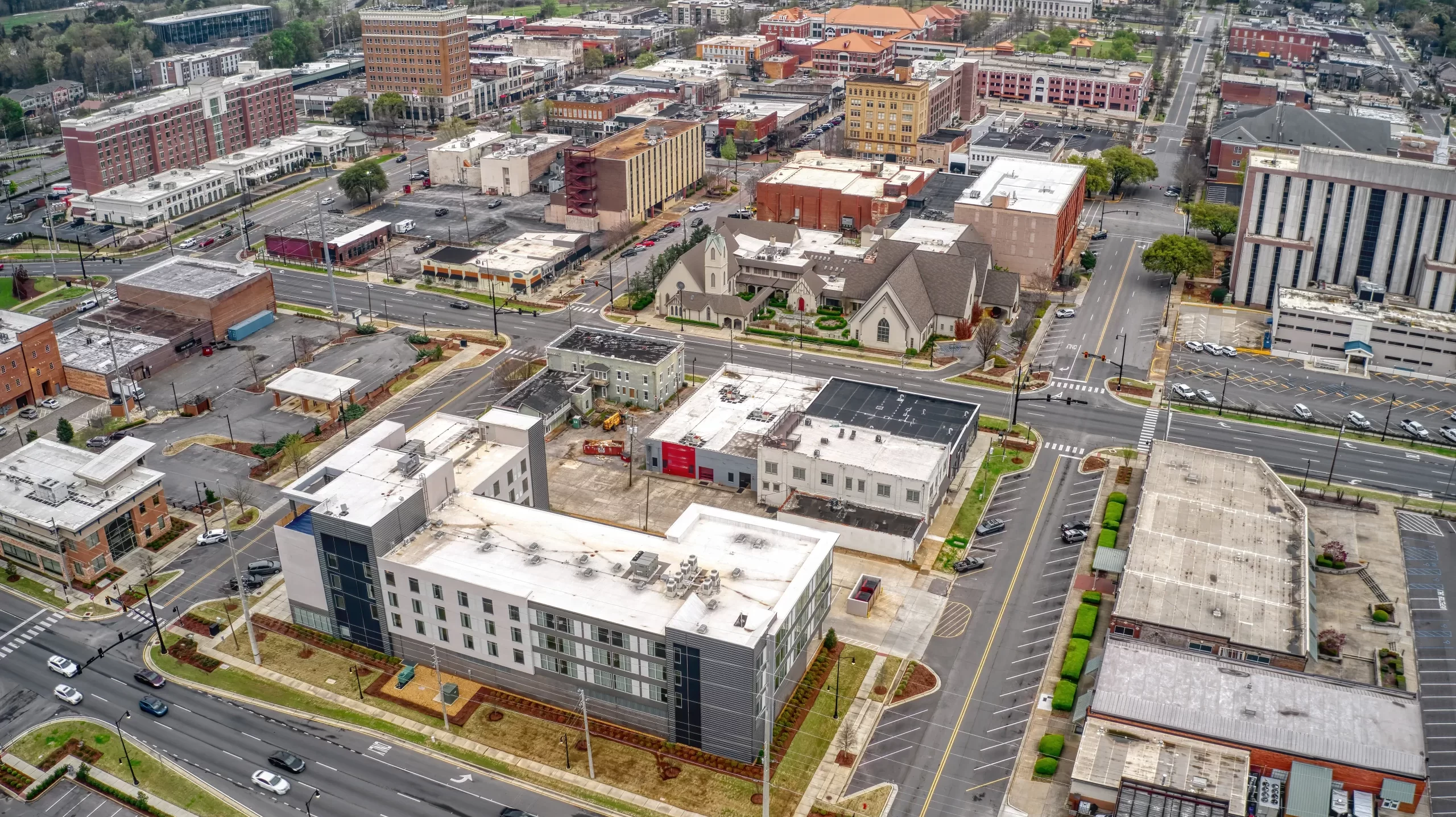A bunch of for-profit, out-of-town landlords are suing Tuscaloosa so they don’t have to pay as much in taxes. Good.
Now don’t get me wrong: I am proudly pro-taxes and just as proudly anti-landlords. We need taxes to finance great programs like SNAP and public schools, and landlords, to quote Adam Smith, “love to reap where they never sowed, and demand a rent even for [the land’s] natural produce.”
But for over a decade now, Tuscaloosa politicians, especially Tuscaloosa Mayor Walt Maddox, have been doing their level best to make students pay more and more in rent. The latest front in this war, and the impetus for this new lawsuit, was trebling the rental license tax for student-oriented developments back in September 2021.
In Tuscaloosa, anyone who is renting out some real property has to pay the city 1 percent of their gross receipts. But if their property is designated as a “student-oriented development” and it happens to have more than 200 bedrooms, then they have to pay 3 percent.
The aforementioned landlord conglomerate are suing because they claim the tax is arbitrary and a “violation of the Equal Protection clause of the United States and Alabama Constitutions.” Now, I am not a lawyer. God willing, I never will be. But that does seem a bit silly to me. It probably seems a bit silly to you. In fact, whether the tax is constitutional is perhaps the least important thing about it.
Thanks to Maddox’s new tax, if you’re a student at the University of Alabama or Stillman College and looking for a cheap apartment, your landlord will probably have to pay three times as much as other landlords renting out smaller, less efficient properties. And believe you me, the corporate landlords that own student housing aren’t just sighing and paying those extra taxes—they’re hiking rents and making students pay.
This latest offense is only the latest in what a more dramatic man than I might call a “long train of abuses and usurpations.” When the city council unanimously approved the tax hike, they’d already banned building units in apartment complexes with four or more bedrooms, kicked off a multi-year building moratorium on student housing developments with over 200 bedrooms, and rubber stamped a host of other measures designed to kick students out of the college town they want to live in.
Don’t believe me? Listen to Mayor Maddox himself. “If you’re like me, you’re sick and tired of seeing student apartments,” said Maddox in a 2021 campaign video. “Since 2013, I have proposed different measures to curb the amount that we see in Tuscaloosa.”
Or read what he posted to Facebook back in 2020: “we don’t need studies because we see that Tuscaloosa has enough student apartments.”
My question to Mayor Maddox, and every Tuscaloosa city councilor, is pretty simple: If we have enough student apartments, why do rents keep going up?
Between April 2023 and April 2024, according to the University of Alabama’s Alabama Center of Real Estate, rents in Tuscaloosa rose 5.14 percent. In comparison, nationally rents only rose an average of 3.48 percent over the same time period.
Anyone who knows me will tell you that I’m one of the last people to harken back to ECON 101 and the magnificent benevolence of the market. But as a general rule, I don’t think prices rise almost 50 percent faster than the national average when there’s more than enough supply.
What has actually happened is that for the last decade Tuscaloosa’s city government has been underestimating the demand for housing, overestimating the negative impacts of student housing on municipal finances, and putting the brakes on necessary construction projects. A recipe for skyrocketing rent prices.
Back in 2013, Maddox’s Student Rental Housing Task Force concluded that “the current student housing rental market is overbuilt relative to the University’s on-campus enrollment.” Two years later, they reconvened just to conclude they were right the first time.
Were they right? Did Tuscaloosa have so much student housing that new units were left unoccupied? Well, a 2020 report from the U.S. Department of Housing and Urban Development found that “student apartments that were completed in 2018 achieved full occupancy on completion and remain fully occupied.” Huh.
Just think critically about the whole situation for a second. Why in the world would developers rush to invest millions and millions of dollars in new student housing complexes if no one was ready to move in? The very fact that Maddox felt he needed to slam the brakes on new student-oriented construction reveals the amount of demand not being met.
Another argument you hear from City Hall pretty regularly is that building more student housing is bad for Tuscaloosa’s finances. The argument goes: Most of Tuscaloosa’s tax revenue comes from sales taxes, residential developments don’t pay sales taxes, ergo replacing businesses with student housing hurts Tuscaloosa’s wallet.
I guess my first thought is, who is really paying those necessary sales taxes? The businesses, or the customers who patronize the businesses? And how would more students living in Tuscaloosa affect local businesses?
After a few years of close observation, I feel fairly comfortable suggesting that college students like to go out to eat, to hit the bars, and to go on shopping sprees with their parents’ money. Feel free to email me if you disagree, I’d love to see your evidence to the contrary.
A new student housing development might replace a few shops, but it replaces those shops with hundreds of new customers with money burning holes in their pockets. Money that can pay sales taxes. And if Tuscaloosa were to massively expand mixed-use zoning, new student housing wouldn’t even have to replace any shops in the first place.
Students want to live in Tuscaloosa. They want to spend money in Tuscaloosa. I think Tuscaloosa should let them.
Yes, a bunch of corporate landlords suing so they can pay less in taxes are not the most sympathetic bunch. In fact, they sound eerily like the enemies in every other kids’ movie.
But for once the big evil corporations are on the right side of an issue.
The city needs to stop taxing student housing developments three times as much as it does every other type of rental property. It needs to let developers actually invest in building new housing to start bringing rents down. It needs to start copying Huntsville and Birmingham and try new things.
No matter what City Hall has been saying, Tuscaloosa needs more student housing.






















































